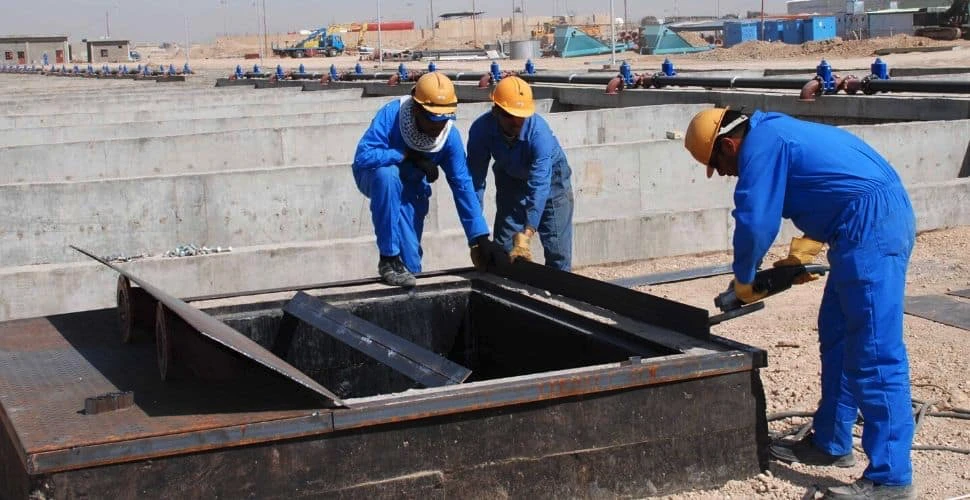End Forced Labor in Qatar

Film by FledgeDirector: Maria Leon3D artist: BondoSoundtrack: @TheBlaze_ProdSFX + VO: @sonhousetweets
Sign the petition calling on Qatar to ensure effective implementation of reforms to protect migrant workers from forced labor. Send a message to Football Associations asking them to call on FIFA to set up a compensation fund for migrant workers.
Exploitation and the 2022 World Cup in Qatar
Bide Majakoti knows the horror of forced labor and modern-day slavery in Qatar first-hand. He traveled from Nepal on the promise of a well-paid job and paid high recruitment fees to secure it. When he arrived in Qatar he was forced to accept a different job and his nightmare of exploitation and modern slavery began.
As preparations for the football 2022 World Cup infrastructure intensify, more low-paid migrant workers in construction, hospitality, and other key sectors will be vulnerable to forced labor under Qatar’s kafala system. Over 90% of Qatar’s workers are foreign workers, brought to the country under kafala, the ‘sponsorship’ system. It is a worker sponsorship program that jeopardizes basic human rights of migrant workers, allowing working conditions that amount to modern slavery to flourish. This system has left thousands of migrant workers in Qatar vulnerable to forced labor and other human rights abuses, often without the ability to change jobs or even leave the country.
Qatar’s kafala system
Since 2018, the Qatari government and the International Labour Organization have collaborated on a series of reforms to the kafala sponsorship system.
In 2020, the Emir of Qatar abolished restrictions on migrant workers changing jobs without their employer’s permission and introduced a monthly minimum wage of 1,000 Qatari riyals, in addition to giving basic living allowances for some workers. Previously, migrant workers required a ‘No Objection Certificate’ from their employer to demonstrate they had their employers’ permission to change jobs. Furthermore, a Wage Protection System was announced to ensure migrant workers are receiving their wages from employers.
Hailed as “ambitious and comprehensive” these reforms signaled the beginning of potentially transformative legislation governing low-paid migrant workers in the country. However, a lack of enforcement and effective implementation of reforms continues to present barriers to low-paid migrant workers exercising their rights and seeking remedies for abuses committed against them.
Bide was forced to do his job in terrible working conditions, in the blistering heat without safety precautions or pay. With no other option open to him, he returned home saddled with debt. While Bide ultimately left his job and returned home to tell his story, thousands of other employees never got that chance. Many others’ experiences are even worse; construction workers often have their wages withheld, are denied exit visas, are housed in dirty, unsafe conditions, and are forced to work long hours with little rest despite the high heat.
Now is the time to keep up the pressure. Qatar’s Ministry of Labor made promises to make substantial reforms to the kafala system, ensuring the protection of migrant workers.
Though we were pleased to see that the Qatari government had introduced new laws to reform the kafala system, full implementation is still lacking. Activists and lawyers working on the ground say that a lack of sufficient resources and the sheer volume of cases is the real cause of the lag for the new law.
“They’ve only abolished the kafala system on paper. It’s the same if not harder to change jobs” says Malcolm Bidali, an activist and blogger on migrant rights who worked under exploitative conditions in Qatar as a security guard.
When the 2022 World Cup is over, there will be fewer eyes on Qatar and less urgency for the Qatar government to implement these crucial reforms, and protect workers’ rights and freedom.
Call on the Qatari authorities to deliver on the critical reforms they promised and end forced labor. Help improve the working conditions of hundreds of thousands of migrant workers in Qatar.
Watch ‘Undercover film of life inside Qatar’s labor camps’ by Equal Times
103,960
-
Kari T.
-
Tamara E.
-
Sally S.
-
Follow us on Facebook
5.6M
-
Follow us on Twitter
32K
-
Follow us on Instagram
8K
-
Subscribe to our Youtube
5.7K
Donate